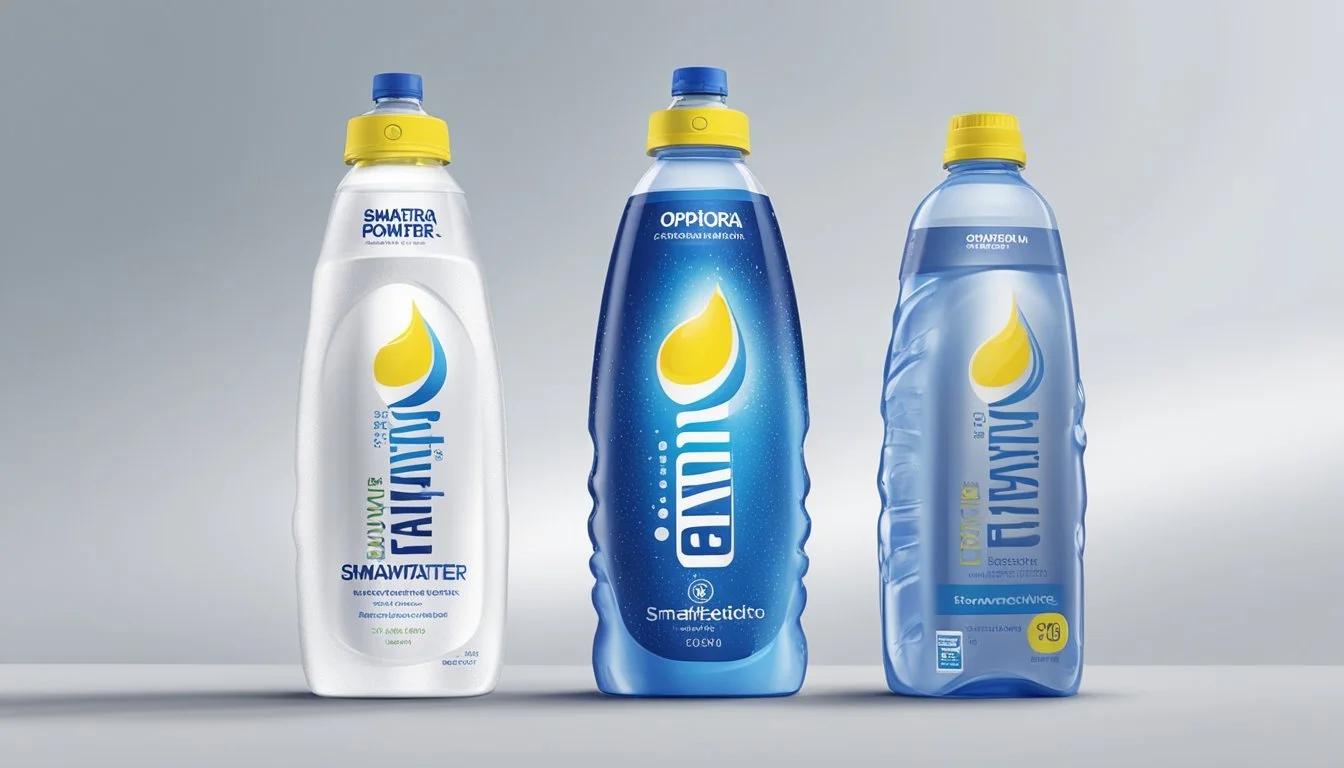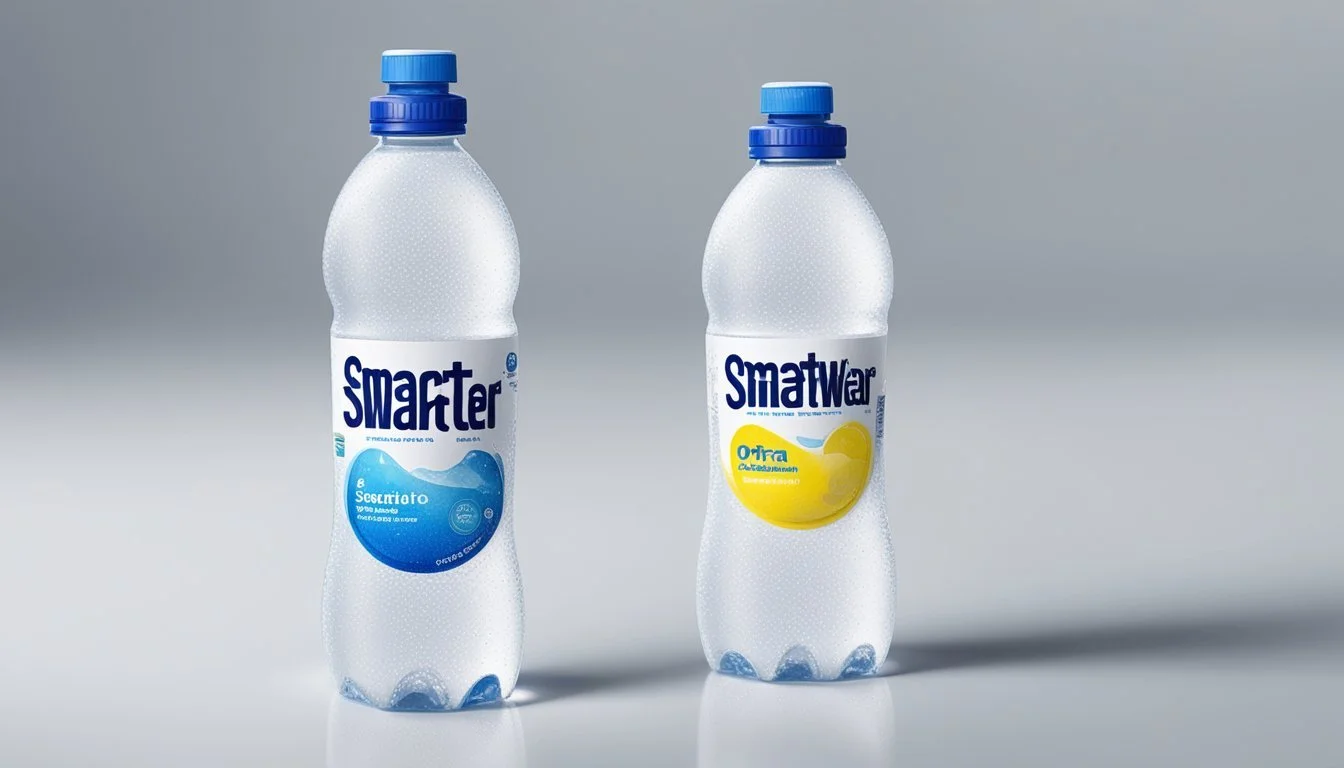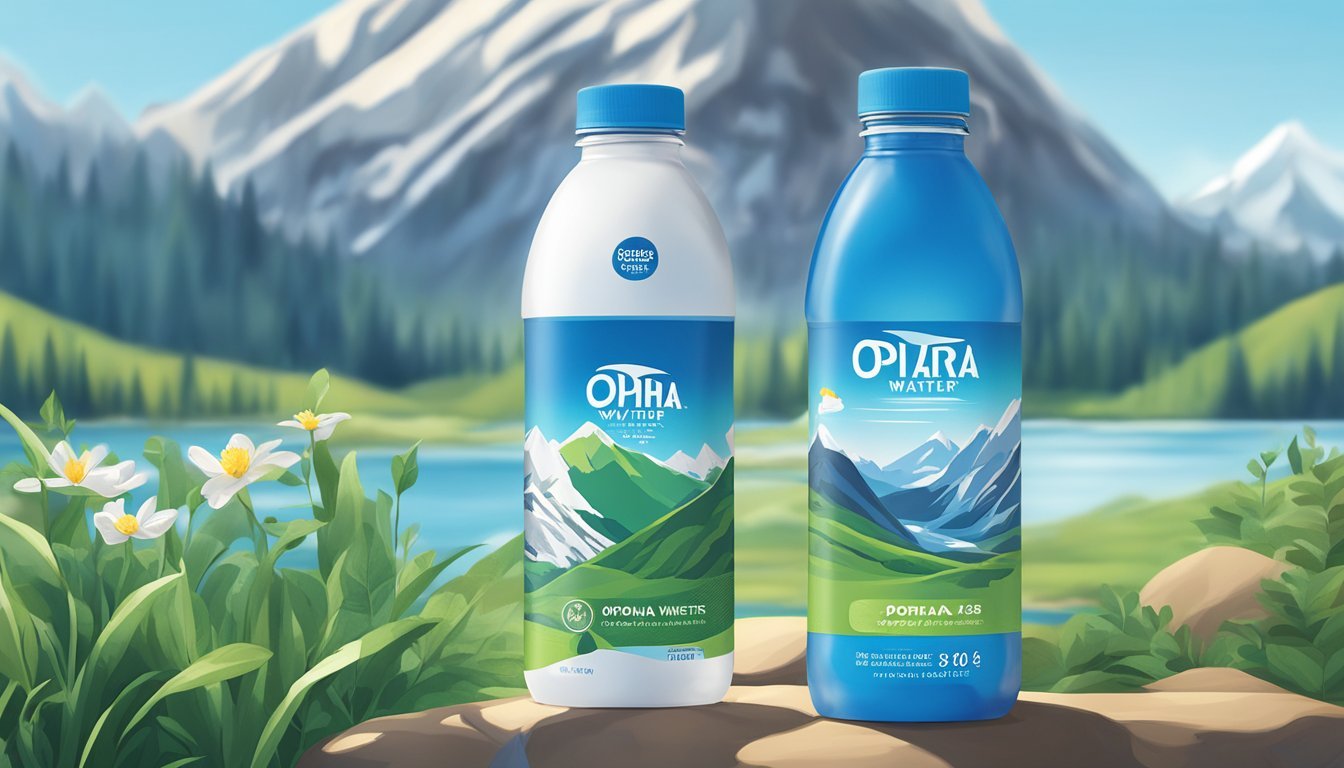Smartwater vs. Ophora
Comparing Benefits and Quality
Comparing Smartwater and Ophora can be enlightening for those seeking the best in bottled hydration options. Both brands have carved a niche in the premium bottled water market, but they cater to different needs and preferences. Smartwater stands out for its added electrolytes and clean taste, making it a favorite among athletes and health-conscious consumers.
On the other hand, Ophora emphasizes ultra-purification and oxygenation, appealing to those looking for optimal hydration and detoxification benefits. Both waters promise superior purity, yet their methods and additional benefits reflect distinct approaches to hydration.
Ultimately, the choice between Smartwater and Ophora largely comes down to personal preference and specific hydration needs. Those prioritizing added electrolytes and a crisp taste might lean towards Smartwater, while individuals seeking advanced purification and oxygenation could find Ophora more appealing.
Understanding Bottled Water
Different types of bottled water offer various benefits and characteristics, influenced by their sources and the processing methods they undergo.
Types of Bottled Water
Bottled water comes in multiple varieties, each with distinct properties. Spring water originates from natural springs and may contain minerals from the earth. Mineral water also comes from springs but must contain a specified amount of dissolved minerals. Purified water undergoes various treatment processes to remove impurities and may start as either tap water or ground sources. Distilled water is another form, where water is boiled and condensed to remove contaminants and minerals. These types cater to different preferences, from those seeking natural mineral content to those preferring purity and hydration.
Water Source and Collection
The source of bottled water significantly influences its quality and taste. Spring and mineral water are naturally sourced, often from protected underground aquifers. These sources provide water with unique mineral compositions. In contrast, purified water can begin as tap water or surface water, which is then treated to meet specific purity standards. The collection of spring and mineral waters usually involves tapping into the underground source, preserving its natural state. Purified water involves sourcing and extensive treatment to remove contaminants.
Filtration and Purification Processes
The methods used to purify and filter bottled water vary. Reverse osmosis is a common process where water is forced through a semipermeable membrane to remove impurities. Distillation involves boiling water and then condensing the steam to eliminate dissolved solids and contaminants. Carbon filtration is often used to remove chlorine and organic compounds, improving taste and odor. UV treatment can disinfect water by using ultraviolet light to kill bacteria and viruses. These processes ensure that the final product meets safety and quality standards, regardless of the original source.
Health and Hydration
Both Smartwater and Ophora offer unique health benefits, particularly in the aspects of hydration and the presence of essential minerals. These factors are critical for maintaining overall wellness and immune system support.
The Role of Electrolytes
Electrolytes like sodium, potassium, calcium, and magnesium are crucial for maintaining hydration levels and proper bodily functions.
Smartwater is known for its addition of electrolytes which include calcium chloride, magnesium chloride, and potassium bicarbonate. This blend enhances taste and supports hydration by replenishing what is typically lost during physical activities.
Ophora, on the other hand, emphasizes a high concentration of oxygen and an array of vital electrolytes. The inclusion of these electrolytes ensures not only taste enhancement but also aids in faster recovery and better hydration after physical exertion.
Minerals and Water Quality
Mineral content directly impacts water quality and the benefits it provides. Smartwater evaporates and distills water for purity and then adds minerals back for taste and health.
These added electrolytes contribute to balanced hydration and support various bodily functions, including muscle function and nerve signaling.
Ophora water highlights its high oxygen content and rich mineral composition, including calcium and magnesium. These minerals are not only essential for bone health, but they also support numerous biochemical reactions in the body. The result is water that aims to hydrate deeply while providing necessary nutrients for maintaining a robust immune system and overall health.
Comparing Smartwater and Ophora
Smartwater and Ophora provide unique benefits in terms of production methods, nutritional profiles, and taste experiences to cater to consumer preferences.
Production Methods
Smartwater is produced using a vapor-distilled process. This technique mimics the natural water cycle by evaporating water to remove impurities and then condensing the vapor. Afterward, essential electrolytes such as calcium, magnesium, and potassium are added back to enhance taste and hydration quality.
Ophora uses advanced filtration techniques to achieve purity. Their process includes micro-filtration, reverse osmosis, and other proprietary methods, ensuring the water is free from contaminants. Unlike Smartwater, Ophora focuses on maintaining the natural mineral content found in pristine sources, emphasizing both purity and natural balance.
Nutritional Profiles
Smartwater adds specific electrolytes during its bottling process. These include minerals like calcium, magnesium, and potassium. These minerals are selected to improve hydration and provide a crisp taste. Smartwater does not naturally contain minerals from its source and relies purely on the controlled addition of electrolytes to create its profile.
Ophora differs by preserving the natural minerals present in its source water through careful filtration. The result is water with a natural mineral content that includes essential nutrients like calcium and magnesium. This approach retains the water's natural balance, making it appealing to those who prefer mineral-rich hydration without artificial enhancement.
Taste Experience
Smartwater's taste is influenced by its vapor-distilled nature and added electrolytes. The result is a crisp, clean flavor that some consumers find highly refreshing. The addition of electrolytes specifically targets a neutral palate with no off-putting undertones, making it a favorite for those who enjoy a pure and straightforward taste.
Ophora offers a distinctive taste experience derived from its advanced filtration and preserved natural minerals. The balance of natural minerals contributes to a slight complexity in flavor, often described as refreshing with a touch of natural sweetness. This makes Ophora stand out for those who appreciate nuanced water flavors.
Environmental Considerations
When evaluating bottled water brands like Smartwater and Ophora, environmental impact is a crucial factor. Key aspects to consider include the sustainability of the packaging and the corporate responsibility initiatives of each brand.
Packaging and Sustainability
The type of packaging significantly affects the environment. Smartwater, owned by Coca-Cola, predominantly uses plastic bottles. These bottles often contain polyethylene terephthalate (PET), which can release estrogenic chemicals such as BPA, posing health risks.
Plastic waste is a major environmental issue due to its non-degradable nature and the pollution it causes. In contrast, Ophora focuses on sustainable packaging options, including glass bottles. Glass is more environmentally friendly as it's recyclable and does not leach harmful substances. The shift towards glass helps reduce plastic pollution and minimizes the carbon footprint associated with manufacturing and recycling processes.
Water Brands and Corporate Responsibility
Corporate responsibility initiatives play a key role in environmental sustainability. Coca-Cola has faced scrutiny over its contribution to plastic waste. Despite efforts to improve recycling rates and cut down on packaging waste, the company's reliance on plastic remains a concern. They have implemented several recycling programs, yet their global plastic footprint continues to impact the environment.
Ophora, on the other hand, emphasizes environmental sustainability in its operations. They invest in advanced water purification systems and prioritize eco-friendly packaging solutions. These efforts demonstrate a commitment to reducing environmental harm and promoting a greener approach to bottled water production.
By addressing both the packaging and corporate responsibility, consumers can make informed decisions about the ecological impact of their bottled water choices.
Consumer Concerns
Ensuring the quality and safety of bottled water is essential for consumers. Key aspects include ingredient transparency and adherence to safety standards and certifications.
Ingredient Transparency
Consumers expect clarity regarding the ingredients in their bottled water. Smartwater labels its product as vapor-distilled for purity, adding electrolytes for taste. Its ingredients typically include calcium chloride, magnesium chloride, and potassium bicarbonate. This level of transparency helps consumers understand what they are ingesting.
Ophora, on the other hand, boasts water enriched with oxygen and minerals. The brand emphasizes the inclusion of vital minerals while ensuring the water remains free from contaminants like heavy metals and fluoride. Transparent ingredient lists foster trust and allow consumers to make informed decisions.
Safety Standards and Certifications
Adherence to rigorous safety standards is crucial. Smartwater complies with FDA regulations and other local guidelines to ensure its products are safe. The water undergoes extensive filtration, which removes impurities and contaminants. Moreover, Smartwater's plastic packaging is BPA-free, addressing common health concerns about plastic leaching harmful chemicals.
Ophora claims additional certifications, validating its commitment to safety. The brand often highlights its extensive testing for impurities, ensuring the absence of toxic substances. Certifications from recognized bodies add a layer of assurance for consumers seeking safe and clean drinking water.
Market and Alternatives
The bottled water market offers a plethora of choices, each brand competing on unique features such as purity, mineral content, and enhanced health benefits. Consumers often need to navigate these options to find the water that best suits their preferences and needs.
Competitive Brands Analysis
The bottled water market is saturated with various brands, each boasting distinctive qualities. Smartwater is known for its vapor-distilled process and added electrolytes, making it a popular choice for those seeking clean-tasting water with balanced electrolytes. Ophora positions itself as a health-enhancing option, claiming benefits like oxygenation and alkalinity.
Essentia is marketed for its ionized alkaline water with a pH of 9.5, appealing to those conscious of acidity levels. Dasani and Aquafina provide more accessible options but often receive criticism for their tap water origins. Evian and Fiji are favored for their natural sources and unique mineral profiles. Meanwhile, Icelandic Glacial and Voss also promote their high purity and distinctive mineral content.
For discerning consumers, the choice might depend on whether they prefer the sophisticated processes of brands like Smartwater and Ophora, or the natural purity touted by brands such as Evian and Fiji.
Natural vs. Enhanced Water Options
Natural water brands emphasize sourcing their water from pristine environments. Evian, with its glacial runoff from the French Alps, provides naturally occurring minerals like potassium and magnesium. Fiji sources its water from an underground aquifer in Fiji, claiming a unique mineral profile that includes silica. Icelandic Glacial and Voss also boast pure, untouched sources with mineral compositions ideal for hydration.
Enhanced water options like Smartwater and Ophora focus on adding value through human intervention. Smartwater uses vapor-distillation and adds electrolytes to enhance taste. Ophora, on the other hand, claims oxygenation and alkalization processes purported to offer additional health benefits.
Consumers' choice between natural and enhanced water often hinges on their preference for natural mineral content versus scientifically tailored hydration solutions.
Practical Considerations for Consumers
When choosing between Smartwater and Ophora, it's crucial to consider factors like cost, accessibility, lifestyle, and consumption habits. These aspects significantly influence consumer choices and overall satisfaction with the product.
Cost and Accessibility
Smartwater is widely available in supermarkets, convenience stores, and online platforms. Its price averages around $1.50 to $2.00 per bottle, making it a relatively affordable premium bottled water brand. Bulk purchasing options can reduce costs.
Ophora, on the other hand, is marketed as a luxury water brand, often priced between $4.00 to $6.00 per bottle. It's not as readily available in regular stores and is usually found in specialty retailers or online. These factors can make it less accessible for budget-conscious consumers or those looking for convenience.
Lifestyle and Consumption Habits
Consumers with active lifestyles may prefer Smartwater for its electrolyte-enhanced formula, which can aid in hydration during exercise. Its portability and affordable price point make it a practical choice for daily consumption and on-the-go hydration.
Ophora appeals more to consumers seeking health benefits beyond hydration. It offers oxygen-enriched and alkaline water, which some believe promotes better health and wellness. Given its higher cost and specialized nature, it's often considered a luxury item suitable for a more conscious and health-focused lifestyle.
In summary, choosing between Smartwater and Ophora largely depends on individual budget constraints, convenience needs, and health priorities. Addressing these practical considerations will help consumers make informed and satisfying choices.
Conclusion
Smartwater and Ophora are both popular bottled water brands with distinct characteristics.
Smartwater offers vapor-distilled water with added electrolytes for taste. It includes variations such as Smartwater Alkaline and Smartwater Antioxidant, which have added minerals and a higher pH.
Ophora markets its water as ultra-purified, focusing on comprehensive filtration to remove contaminants. Additionally, Ophora claims to offer benefits like enhanced oxygenation and optimal pH levels.
When considering health, one's choice might depend on specific needs. Smartwater provides a straightforward option with added electrolytes, while Ophora emphasizes its advanced purification process and additional health benefits.
For those seeking hydration, both brands deliver high-quality water. If taste and added minerals are priorities, Smartwater is a good option. For those who prioritize purity and potential health enhancements, Ophora may be the preferred choice.
Recommendations:
If you prefer water with added electrolytes, consider Smartwater.
If you value advanced purification and potential health benefits, consider Ophora.
Both brands provide adequate hydration and are among the healthier bottled water choices available.
More About Smartwater
Core Hydration vs Smartwater: Which Bottled Water is Better?
Icelandic Glacial vs Smartwater: Which Bottled Water is Better?
Mountain Valley Spring Water vs Smartwater: Which Bottled Water is Better?
Nestle Pure Life vs Smartwater: Which Bottled Water is Better?
San Pellegrino vs Smartwater: Which Bottled Water is Better?
Smartwater vs Aqua Carpatica: Which Bottled Water is Better?
Smartwater vs Cascade Mountain: Which Bottled Water is Better?
Smartwater vs Crystal Geyser: Which Bottled Water is Better?
Smartwater vs Hawaii Volcanic: Which Bottled Water is Better?
Smartwater vs Hawaiian Springs: Which Bottled Water is Better?
Smartwater vs Kirkland Signature: Which Bottled Water is Better?
Smartwater vs Richard's Rainwater: Which Bottled Water is Better?
Smartwater vs Solan de Cabras: Which Bottled Water is Better?
Smartwater vs Talking Rain AQA: Which Bottled Water is Better?
Smartwater vs Whole Foods 365: Which Bottled Water is Better?
Smartwater vs Whole Foods Italian Still Mineral water: Which Bottled Water is Better?










